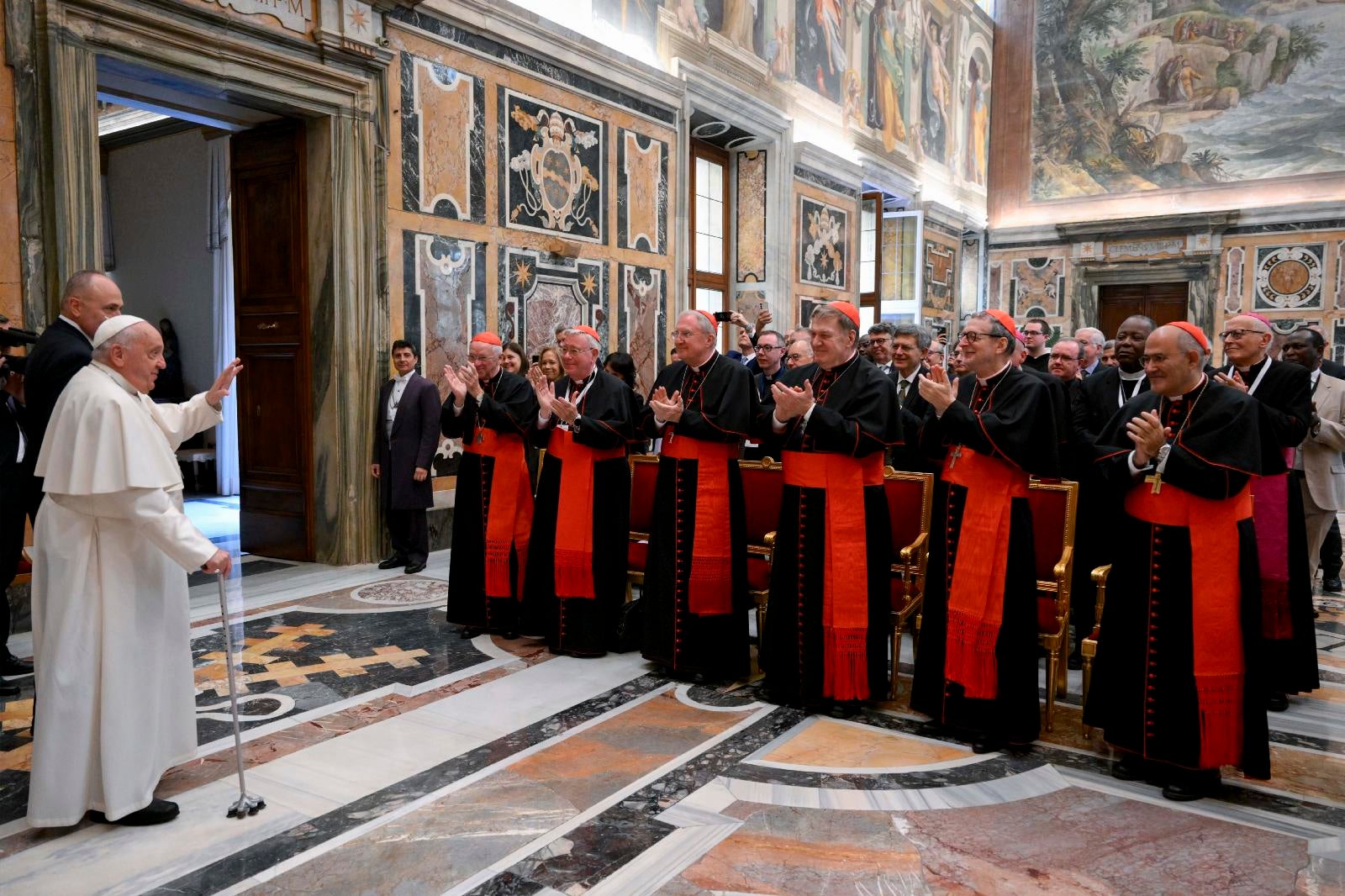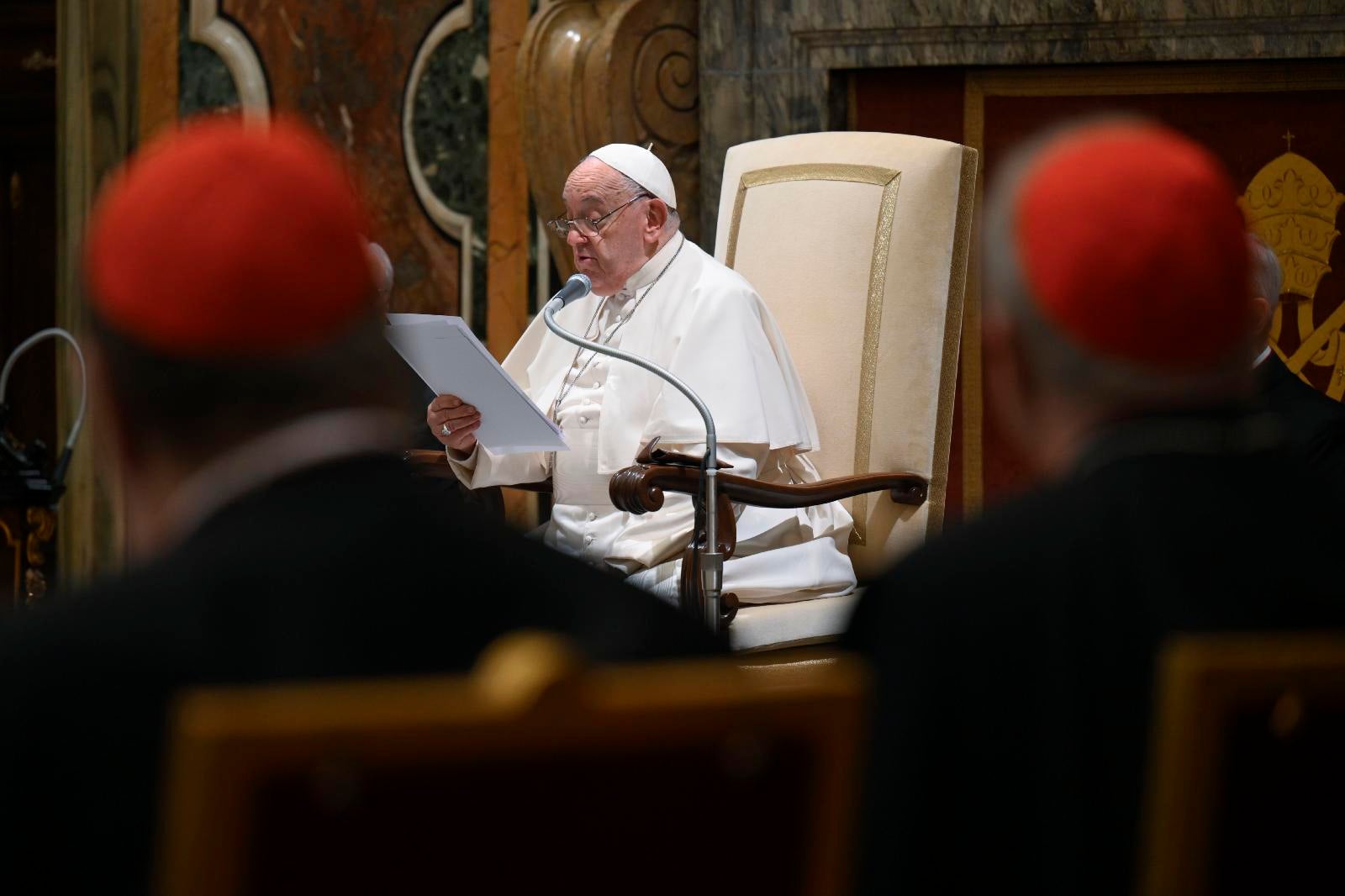VATICAN CITY (CNS) — Culture and education must go hand-in-hand to form students into agents of social change driven by hope, Pope Francis said.
“There is no need for educational models that are mere ‘achievement factories’ without a cultural plan that enables the formation of people capable of helping the world turn over a new leaf by eradicating inequality, endemic poverty and exclusion,” he told participants in a plenary assembly of the Dicastery for Culture and Education.
The meeting Nov. 21 marked the first plenary assembly of the dicastery since it was formed in 2022 by combining the Congregation for Catholic Education and the Pontifical Council for Culture. The assembly focused on the theme, “Let Us Cross to the Other Shore.”
Pope Francis explained that he joined the culture and education departments of the Holy See into one dicastery not for economic efficiency, but to inspire dialogue and innovation between the two branches of the church.
“The world does not need sleepwalking repeaters of the status quo,” he said, “but new choreographers, interpreters of the potential within humans, new social poets.”
Pope Francis said that schools, universities and cultural centers must teach people “to desire, to stay thirsty, to have dreams,” rather than to “passively accept” the current state of the world.
While noting the record number of students currently enrolled in schools, Pope Francis condemned the stark disparity between them and the 250 million children and young people who lack access to education.
“It is a moral imperative to change this situation, because cultural genocides do not happen only due to the destruction of heritage,” he said. “It is cultural genocide when we steal the future from children, when we do not offer them conditions to become what they could be.”
Pope Francis urged the dicastery officials to think of the many children worldwide who, instead of attending school, are forced to “look through the trash for things to sell to be able to eat. Let us think about the future humanity of these children.”
He also stressed the need for Catholic universities to be involved in researching the consequences of the technological revolution of artificial intelligence.
Yet the pope insisted that as inheritors of the church’s rich cultural and educational legacy, Catholics should “do away with the burden of pessimism — pessimism is not Christian.”
“Let us converge with all our strength to remove from the human being the shadow of nihilism, which is perhaps the most dangerous plague of today’s culture because it insists on erasing hope,” he told the dicastery officials. “Let us not forget: Hope does not disappoint; it is strength.”
The pope highlighted the opportunities that arise from periods of “complex cultural transitions,” which he said can be the most fruitful moments for advancing human thought.
“We must not allow the feeling of fear to prevail,” he said.


